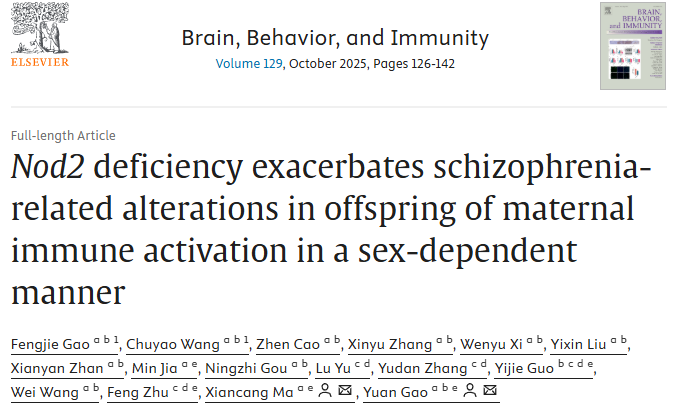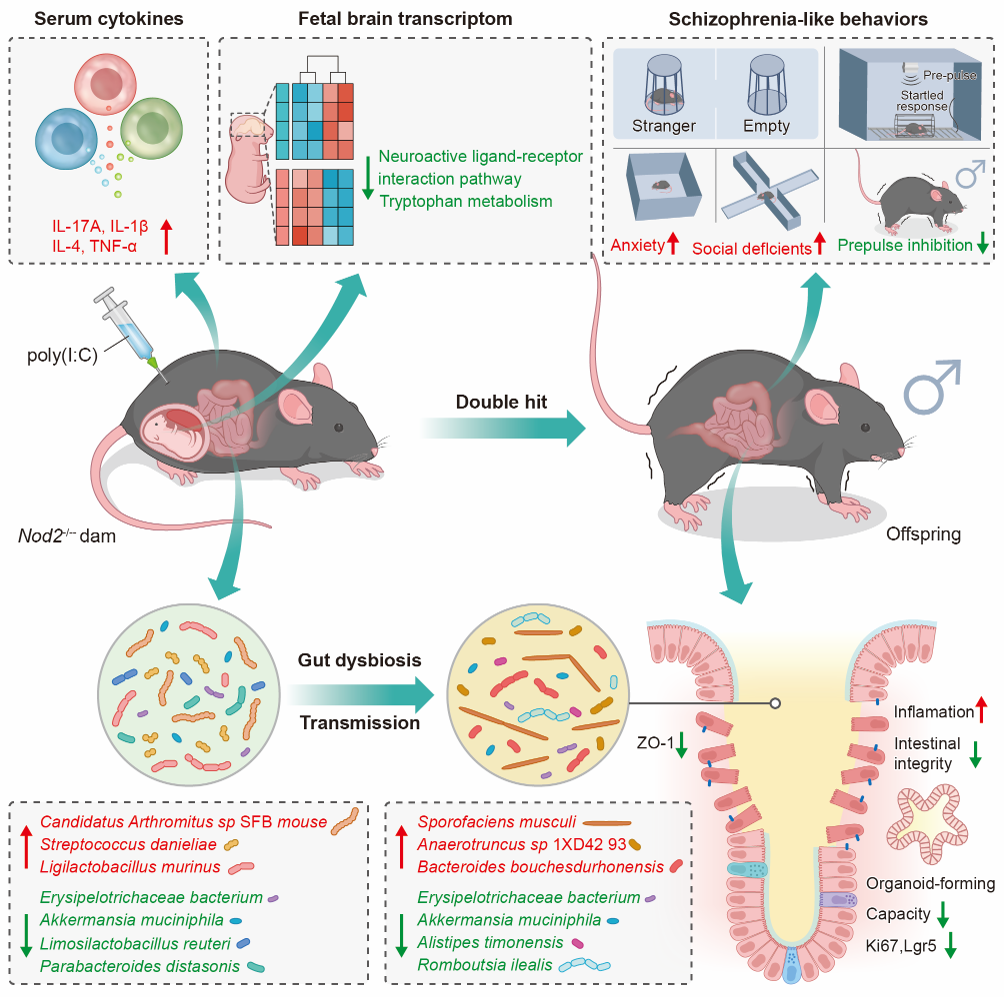On June 6, 2025, the teams led by Ma Xiancang and Gao Yuan from Department of Psychiatry of the First Affiliated Hospital (FAH) of Xi'an Jiaotong University (XJTU) published an original research article entitled "Nod2 deficiency exacerbates schizophrenia-related alterations in offspring of maternal immune activation in a sex-dependent manner" in Brain Behavior and Immunity, an authoritative journal in the field of psychiatry (Q1 of Chinese Academy of Sciences), establishing the double-hit model of Nod2 deficiency and maternal immune activation for the first time and further revealing the key mechanism of gut microbiota-immune-brain axis underlying the incidence and development of schizophrenia.

The teams’ previous research suggests that schizophrenia is correlated with gut microbiota disturbance. The bacterial wall compound muramyl dipeptide (MDP) is one of the upstream mediators of patients' immune activation. As an intracellular pattern recognition receptor, Nod2 can recognize MDP, maintain the immune balance between gut microbiota and host, and also serves as a key regulator of gut-brain axis. In addition, MIA during pregnancy is regarded as a strong risk factor for schizophrenia. Nevertheless, "genetic defect" will increase individual susceptibility to MIA and impair the reactivity of Nod2 in patients, but the underlying mechanism remains unknown.

In this study, the teams constructed double-hit Nod2-/- mouse models and found that dual exposure of Nod2 deficiency and immune activation during pregnancy would lead to schizophrenia-like behavior in male offspring, accompanied by abnormal brain development, intestinal barrier dysfunction and microbial community disorder. Metagenome analysis confirmed that the imbalance of maternal gut microbiota can transmit and affect the offspring, increasing the risk of neurodevelopmental disorders. This process involves the destruction of intestinal integrity, impairment of intestinal organoid-forming capacity, abnormal neurotransmitter signals and changes of gene expression profile in fetal brain.
This study provides direct experimental evidence for the "genetic-environmental-microbial" interaction theory for schizophrenia, highlights the significance of multiple factors in the incidence and development of mental illness, and reveals the key role of intestinal microbiota and related immune signaling pathways. These research results lay a foundation for developing early interventional strategies for mental illness based on intestinal immune regulation and create a novel perspective to improve mental health. Subsequent investigations may focus upon modulating microbiota by targeting Nod2 signaling pathway, providing innovative ideas to prevent neurodevelopmental disorders and deliver personalized medical care for high-risk populations.
Professor Ma Xiancang and postdoctoral fellow Gao Yuan from FAH are the corresponding authors. Assistant Researcher Gao Fengjie and PhD Wang Chuyao are the first authors. This study was completed in Shaanxi Provincial Key Laboratory of Biological Psychiatry and supported by National Natural Science Foundation of China, etc.
Full-text link: https://www.sciencedirect.com/science/article/pii/s0889159125002077? via%3Dihub
